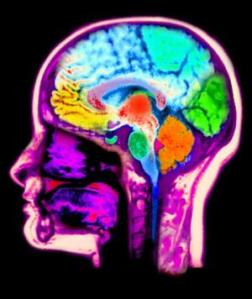by Reni Gorman
 Tip #4: Find out what your learners know, or think they know.
Tip #4: Find out what your learners know, or think they know.
Cognitive Psychology: Draw out pre-existing conceptions and, more importantly pre-existing misconceptions.
Why (Justification):
“Students come to the classroom with preconceptions about how the world works. If their initial understanding is not engaged, they may fail to grasp the new concepts and information that are taught, or they may learn them for purposes of a test but revert to their preconceptions outside the classroom.” (Bransford et al., 2000, p. 14-15) An excellent example comes from Vosniadou and Brewer (1989). Children think the earth is flat because of their pre-existing experiences with it such as walking on it and looking at it. When told the earth is round children picture a pancake instead of a sphere. They must be told it is spherical along with explanations as to why they have experienced it as flat in order for them to really learn and accept this new information.
New information learned can have an effect on how well you remember older information learned especially if the new information causes a conflict with the old and creates interference. (Anderson, 2000) The good news is that if we learn something new that contradicts what we thought in the past (retroactive interference), we will eventually forget the old information and remember the new information.
If learners have misconceptions that are not brought to light and corrected, they will never be able to effectively build on that knowledge in the future. Knowing what your learners know will also help you set the base-line and pace for the course. Many times instructors assume that their learners have a certain baseline knowledge, when in fact they do not… or they may think they know but their base line understanding is incorrect.
References:
Anderson, J. R. (2000). Cognitive Psychology and Its Implications: Fifth Edition. New York, N.Y.: Worth Publishers.
Bransford, J. D., Brown, A. L., & Cocking, R. R. (2000). How People Learn: Brain, Mind, Experience, and School. Washington, D.C.: National Academy Press.
Vosnaidou, S., & Brower, W. F. (1989). The Concept of the Earth’s Shape: A study of Conceptual Change in Childhood. Unpublished paper. Center for the Study of Reading, University of Illinois, Champaign, Illinois.
 Tip #4: Find out what your learners know, or think they know.
Tip #4: Find out what your learners know, or think they know.Cognitive Psychology: Draw out pre-existing conceptions and, more importantly pre-existing misconceptions.
Why (Justification):
“Students come to the classroom with preconceptions about how the world works. If their initial understanding is not engaged, they may fail to grasp the new concepts and information that are taught, or they may learn them for purposes of a test but revert to their preconceptions outside the classroom.” (Bransford et al., 2000, p. 14-15) An excellent example comes from Vosniadou and Brewer (1989). Children think the earth is flat because of their pre-existing experiences with it such as walking on it and looking at it. When told the earth is round children picture a pancake instead of a sphere. They must be told it is spherical along with explanations as to why they have experienced it as flat in order for them to really learn and accept this new information.
New information learned can have an effect on how well you remember older information learned especially if the new information causes a conflict with the old and creates interference. (Anderson, 2000) The good news is that if we learn something new that contradicts what we thought in the past (retroactive interference), we will eventually forget the old information and remember the new information.
If learners have misconceptions that are not brought to light and corrected, they will never be able to effectively build on that knowledge in the future. Knowing what your learners know will also help you set the base-line and pace for the course. Many times instructors assume that their learners have a certain baseline knowledge, when in fact they do not… or they may think they know but their base line understanding is incorrect.
How (Application):
When designing your course, you must learn as much as you can about your learners. Are they beginners, intermediate, or advanced? What do they know, what do they need to know and what may they think they know or know incorrectly? If you can’t reach out to your learners before class then anticipate as much as you can… For example, you can think about the most common misconceptions about each of your main points. Try to come up with a question for each main point, the answer to which will clarify the misconception. For example: Do you think that pre-existing knowledge makes a difference in how people learn?References:
Anderson, J. R. (2000). Cognitive Psychology and Its Implications: Fifth Edition. New York, N.Y.: Worth Publishers.
Bransford, J. D., Brown, A. L., & Cocking, R. R. (2000). How People Learn: Brain, Mind, Experience, and School. Washington, D.C.: National Academy Press.
Vosnaidou, S., & Brower, W. F. (1989). The Concept of the Earth’s Shape: A study of Conceptual Change in Childhood. Unpublished paper. Center for the Study of Reading, University of Illinois, Champaign, Illinois.


